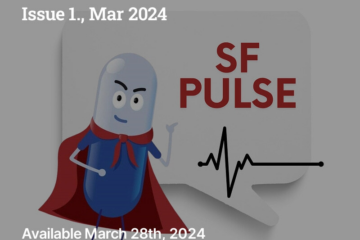This statement is made on behalf of IPSF, supported by the Fight the Fakes campaign, a partner in our mission to decrease patient exposure to falsified medications worldwide. As students, pharmacists, and pharmaceutical scientists, this topic is important to us because we want our patients to receive medications that are safe, effective, and legitimate. Patient exposure to falsified medication is a chronic public health issue that results in delayed care, disease progression, increased mortality and antimicrobial resistance. It also contributes to distrust of government, health care systems, and health care professionals.
To combat this issue, we encourage increasing awareness to patients and stakeholders and elevating the seriousness of participating in this criminal activity. We share the belief that coordination among all actors is vital to tackle this public health risk and we invite other organizations to join in efforts to empower people.
We encourage tighter control across all players involved in all steps of the supply chain for medicines delivery. Online sales of medicines are an increasing problem as many unregulated online pharmacies sell falsified medicines. Many countries work towards strengthening the supply chain with activities such as ‘track and trace’ to stop falsified medicines reaching patients. In addition, legal tools such as the MEDICRIME Convention are working to protect patients from the threat of falsified medicines. Signed by 27 countries and ratified by 9 of them, it acknowledges that it is a criminal offense to produce and distribute falsified medical products, and is enforceable at national and international levels.
As the leader on global health matters, the World Health Organization has an unparalleled role to play in combating falsified medicines worldwide. We urge the WHO to take the necessary measures to efficiently fight this global threat and protect public health.
IFPMA statement
Progress toward health improvement will not be achievable without a consistent and constant fight against falsified medicines. Falsified medicines deliberately and deceitfully attempt to pass themselves off as genuine approved medicines. They represent a serious threat to patients, and undermine the full spectrum of legitimate medicines both patented and generic medicines, and exist in all therapeutic areas.
Falsified medicines are a public health threat which knows no border. They are sold in the streets and open markets but also penetrate the legitimate supply chain and less regulated markets like the Internet. No country is immune to this danger.
Initiatives to fight this scourge are increasing, but success will be achieved only through collective action building on each actor’s expertise and strength. IFPMA commends the fifth recommendation of the Mechanism review report which encourages the engagement of additional actors, including manufacturers. As a partner in global health, IFPMA plays its part, in particular as a member of Fight the Fakes, a campaign of over 30 leading public health organizations that coordinate their efforts to speak up against falsified medicines.
The lack of a globally approved definition is a key hindrance to strong coordinated action. IFPMA therefore welcomes the consensus found by the WHO mechanism members in accepting the use of the term “falsified” for the purposes of work within the Member State mechanism. Reaching this consensus is an important step forward.
This agreement is in line with IFPMA’s position: as stated in our Ten Principles, patents have nothing to do with falsified medicines. Efforts to tackle falsified versions of genuine approved medicines must not be confused with patent infringement disputes.

